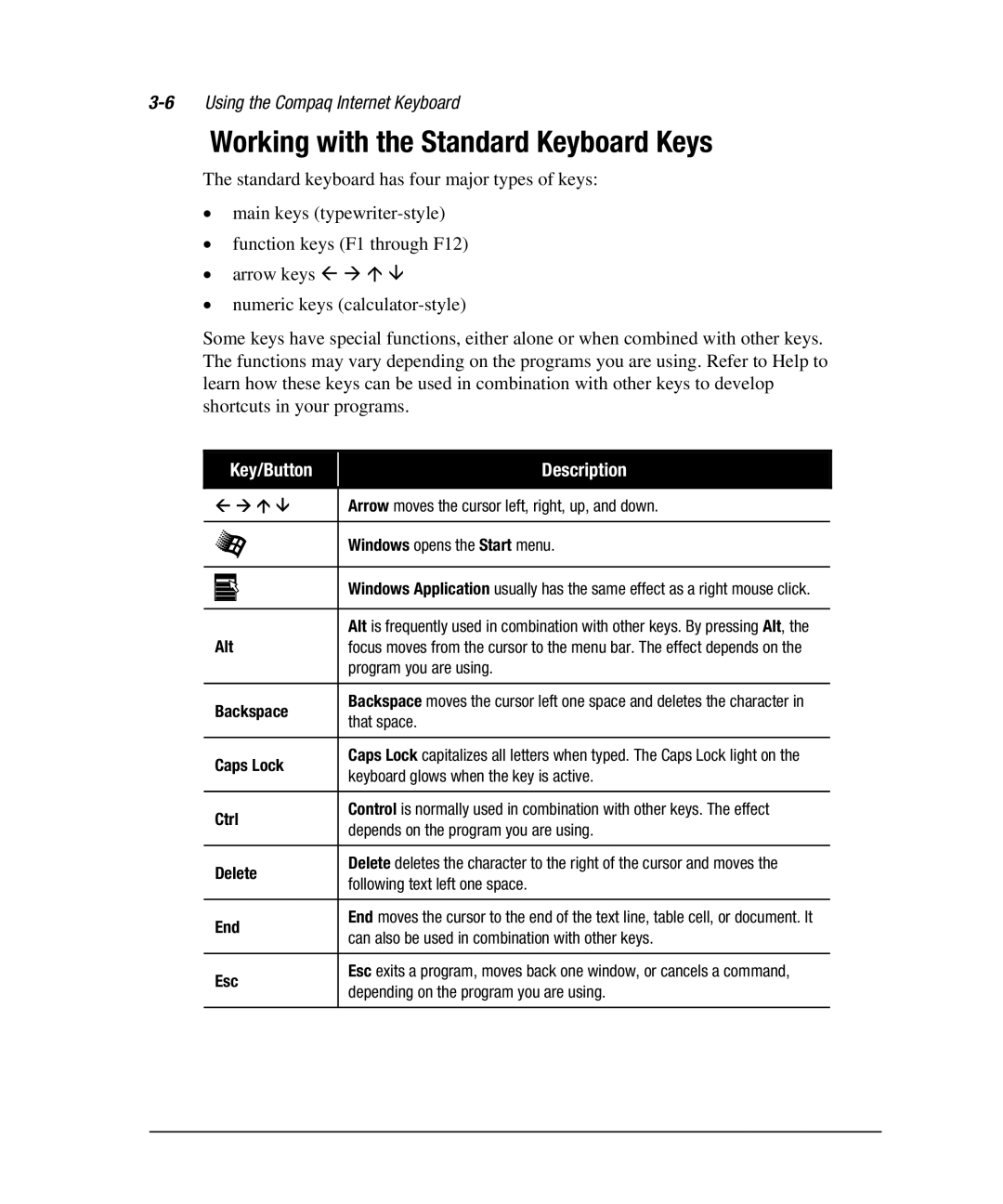
3-6 Using the Compaq Internet Keyboard
Working with the Standard Keyboard Keys
The standard keyboard has four major types of keys:
xmain keys
xfunction keys (F1 through F12)
xarrow keys Å Æ Ç È
xnumeric keys
Some keys have special functions, either alone or when combined with other keys. The functions may vary depending on the programs you are using. Refer to Help to learn how these keys can be used in combination with other keys to develop shortcuts in your programs.
| Key/Button | Description |
| ||
|
|
|
| Å Æ Ç È | Arrow moves the cursor left, right, up, and down. |
±Windows opens the Start menu.
) | Windows Application usually has the same effect as a right mouse click. | |
|
| |
| Alt is frequently used in combination with other keys. By pressing Alt, the | |
Alt | focus moves from the cursor to the menu bar. The effect depends on the | |
| program you are using. | |
|
| |
Backspace | Backspace moves the cursor left one space and deletes the character in | |
that space. | ||
| ||
|
| |
Caps Lock | Caps Lock capitalizes all letters when typed. The Caps Lock light on the | |
keyboard glows when the key is active. | ||
| ||
|
| |
Ctrl | Control is normally used in combination with other keys. The effect | |
depends on the program you are using. | ||
| ||
|
| |
Delete | Delete deletes the character to the right of the cursor and moves the | |
following text left one space. | ||
| ||
|
| |
End | End moves the cursor to the end of the text line, table cell, or document. It | |
can also be used in combination with other keys. | ||
| ||
|
| |
Esc | Esc exits a program, moves back one window, or cancels a command, | |
depending on the program you are using. | ||
|
